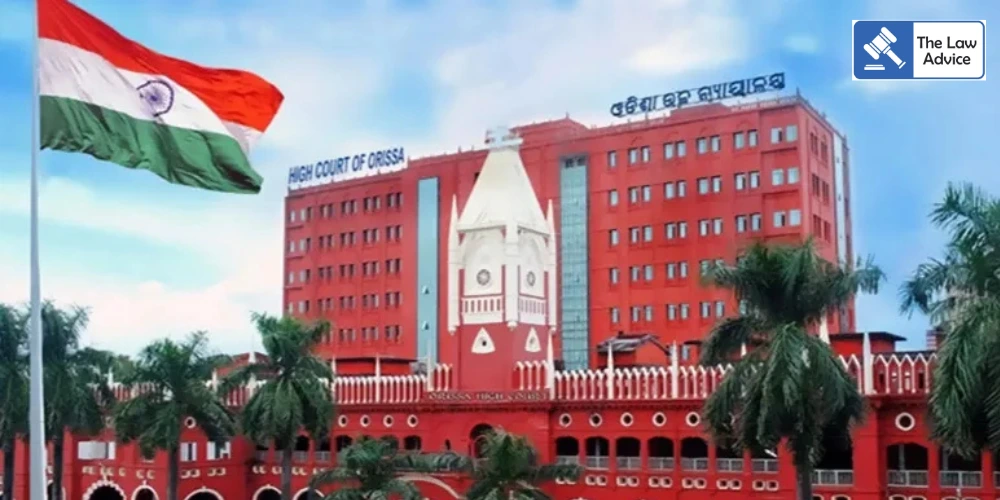The Orissa High Court has altered the conviction of six persons in a 1994 village murder case, reducing it from murder under Section 302 IPC to culpable homicide not amounting to murder under Section 304 Part-II IPC. The case arose from a violent confrontation following the alleged harassment of a young girl, which escalated into the fatal assault of her father.
Delivering the judgment, a Division Bench comprising Justice Sangam Kumar Sahoo and Justice Chittaranjan Dash invoked a powerful historical analogy from the Mahabharata, remarking:
“A trivial incident of passing lewd comments to a girl during a village video show followed by protest by her family members escalated into an uncalled-for tragic scenario of murder of the girl’s father. Glaring examples are there in scripture when the game of dice and subsequent humiliation of Draupadi stood out as a pivotal incident that irrevocably set stage for the Kurukshetra War.”
The Bench held that while the appellants were guilty of unlawful assembly and fatal assault, the evidence did not establish that they intended to kill the victim.
On August 22, 1994, a group of village children had arranged a video show near a local mandap. During the event, one of the accused allegedly passed obscene remarks at the daughter of the deceased. The girl immediately informed her uncle, who approached the father of the accused to settle the matter.
The following evening, a meeting was convened in the village to resolve the issue, but the situation spiraled into a quarrel. Supporters of the accused allegedly hurled brickbats at the complainant’s house and later ransacked it. On the morning of August 24, 1994, the six appellants, along with others, allegedly dragged the victim from his hiding place to a nearby paddy field and assaulted him with weapons. The man succumbed to his injuries, and his body was left in the field.
An FIR was registered and the police filed a charge-sheet against 70 persons. Ultimately, 64 were acquitted, but six men, along with another accused who has since died, were convicted under Sections 147 (rioting), 148 (rioting with deadly weapons), 302 (murder), and 149 IPC (unlawful assembly liability).
While hearing the appeal, the High Court confirmed the homicidal nature of death based on the inquest, post-mortem, and medical evidence.
The prosecution relied on three eyewitnesses, though the defense questioned the credibility of one due to a delay in examination. The Bench, citing Ganesh Bhavan Patel v. State of Maharashtra (1978) and Lahu Kamlakar Patil v. State of Maharashtra (2012), clarified that delay in witness examination does not automatically discredit testimony if the explanation is reasonable and the account trustworthy.
Supporting testimonies from four other witnesses were also found to corroborate the prosecution’s version, confirming that the appellants were armed, part of the unlawful assembly, and directly participated in the assault.
“It is not a case of mere presence of the appellants in the unlawful assembly as spectators. Their overt acts and participation in chasing and attacking the deceased are clearly established,” the Court observed.
The defense argued that the acts of the appellants did not constitute “murder” but rather culpable homicide not amounting to murder.
The Bench agreed, noting that none of the injuries, either individually or collectively, were sufficient in the ordinary course of nature to cause death. Relying on precedents including Molu & Ors. v. State of Haryana (1976), Chuttan & Ors. v. State of Madhya Pradesh (1993), and Sudina Prasad & Ors. v. State of Bihar (2001), the Court concluded that the appellants acted with knowledge that their assault could cause death, but without intention to kill.
Accordingly, the conviction was modified from Section 302/149 IPC to Section 304 Part-II/149 IPC, while maintaining their guilt under Sections 147 and 148 IPC.
The six appellants were taken into custody in August 1994 and had served more than two years of imprisonment before being granted bail in 2000. Taking into account that they have been on bail for more than 25 years without incident, the Bench ruled that no useful purpose would be served by sending them back to prison now.
The sentence was therefore reduced to the period of imprisonment already undergone.
Case Details
• Case Title: Dinabandhu Dehury & Ors. v. State of Odisha
• Case No.: CRA No. 02 of 1998
• Date of Judgment: August 21, 2025
• Bench: Justice Sangam Kumar Sahoo and Justice Chittaranjan Dash
• Counsel for Appellants: Mr. Devashis Panda
• Counsel for State: Mr. Jateswar Nayak, Addl. Govt. Advocate
